#ran bouki
Text
MDSS Season 2 Extra Episodes 11 and 12 are now available in English
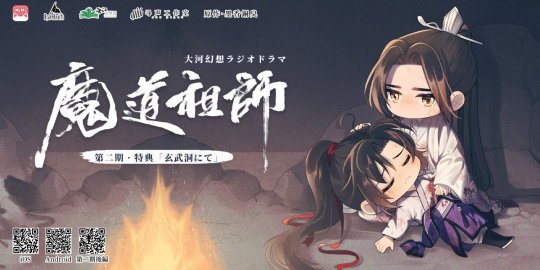
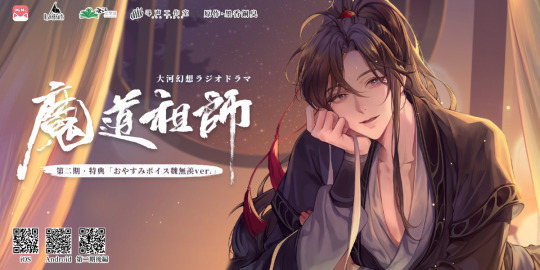
The download link can be found on our Discord server.
A gentle reminder to not reupload our files on any social media. Thank you everyone!
#mdzs#mo dao zu shi#mdss#ma dou so shi#mdzs japanese audio drama#lan wangji#wei wuxian#gi musen#ran bouki#wangxian
146 notes
·
View notes
Text
I was watching the japanese audiodrama of MDZS, and dude, hearing Gi Musen (aka Wei Wuxian) calling Ran Bouki (aka Lan Wangji) “Ran nii-chan” was something I never new I needed on a spiritual level. The day is beautiful, my skin is moisturised, and my depression is cured.
#mo dao su zhi#mo dao zu shi audiodrama#mo dao zu shi papanese audiodrama#mo dao so shi#wei wuxian#wei ying#lan wangji#lan zhan#wangxian
2 notes
·
View notes
Text
Difficult angle to draw..for me
Im still new to Ibis paint, Im using the old one thats why my tools are limited thanks to mdzs I have more ideas to draw so I can experiment on Ibis paint
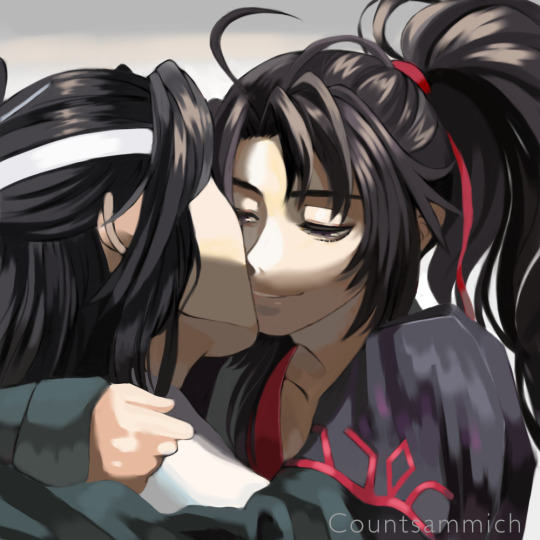
#mo dao zu shi#donghua#fanart#lan wangji#the founder of diabolism#ran bouki#mado soushi#wangxian#gi musen#zankou#hanguang jun#wei ying#ibispaint art
36 notes
·
View notes
Text
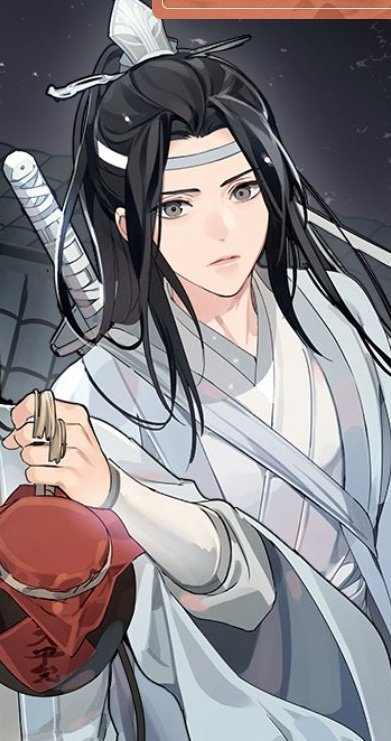
BOI HE SO SMOL AND SOFT~
🌸🌸🌸
20 notes
·
View notes
Text

MDSS AD EP 3 LETS GET IT
the art for this EPISODE MAKES ME WANT TO EXPLODE omg LOOK AT THEM look at LWJ oh my FUCK i love gearous... so much...
i know i said it already but i love this jin ling. he doesn't sound as bratty or stuffy or nasally, ayumu murase's voice is too clear, but the haughtiness is definitely still prevalent and the clarity of his voice is actually really nice for jin ling??
aw wait:
gi musen, riding towards the temple on ringo-chan: hey, you brats!
ran keigi (ljy): who are you calling brats?! don't you know what sect we're from? just because you took off that funeral make up, don't think you can start acting like a senpai!
gi musen: right, right, right. then, "onii-san-tachi." fire your rescue signal...
wwx calling the juniors "onii-san-tachi" (as if he's addressing people senior to him) is actually adorable. 🥺
omg wwx is playing his shoddy makeshift bamboo flute and it's as terrible as you'd hope lmao
GUYS HE'S PLAYING WANGXIAN ITS HAPPENING
omg i think that was lwj. you could hear him like gasping for air as he ran towards wwx. OMG HE JUST SAID "KIMI GA?" ("is it you?") he's so reactive you can hear the hope in his voice oh my heart
wait this lwj is actually so good.
gi musen: my type? hm, i guess it would be someone like gankou-kun (hanguang-jun).
ran bouki: "itta na." ("you said it.")
the vibes are kinda like 'you actually said it.' or 'you said it, not me.' or even "you asked for it". you guys need to listen to this pjgjdhd i'm going insane. literally it only takes two words from lwj for me to go insane.
#madou soshi listen#what an episode. my god#mdzs#mdss#madou soshi#ma dou so shi#mo dao zu shi#wei wuxian#lan wangji#wangxian
83 notes
·
View notes
Text

The Japanese audio drama returns with the 2nd half of the first season, starting with episode 7:
Gi Musen/Gi Ei (WWX/Wei Ying) meets the cutest puppy in the world and has a date with Ran Bouki/Ran Zan (LWJ/Lan Zhan) in the Nie family tombs!
Episode art by Gearous.
MIMI FM official link (raw, behind paywall, also available on MIMI app): https://m.mimifm.jp/sound/14349
The Japanese AD is also available on MAOER FM as well.
~
Additional References:
- Original Chinese audio drama ep 7 at Maoer FM site: https://m.missevan.com/sound/1027466
- Novel chaps 20 - 23
https://exiledrebelsscanlations.com/novels/grandmaster-of-demonic-cultivation/
- MDZS donghua eps 18 and 19 (available on Youtube)
- MDZS manhua chaps 47 - 53 (available on WeComics app)
- The Untamed eps 33 - 34 (available on Youtube, Netflix & WeTV)
51 notes
·
View notes
Text
Japanese MDZS Audio Drama VAs for WWX and LWJ have been announced!
Tatsuhisa Suzuki will be voicing Wei Wuxian (Gi Musen) and Satoshi Hino will be voicing Lan Wangji (Ran Bouki). Season 1 starts on January 24 and will be releasing new episodes every Friday!
Here's preview audio clips from MimiFM's twitter (@mimifm11):
WWX: 「どんな男? そうだな、含光君のような男が好きだ」 ("What type of man? Oh right, [gankou kun]'s is the type of man i like!")
LWJ: 「この人は、私が藍家に連れて帰る」 ("This person, I will take with me back to Lan Sect.")
#mdzs#mo dao zu shi#lan wangji#lan zhan#lwj#wei wuxian#wei ying#wwx#gdc#grandmaster of demonic cultivation#jp mdzs audio drama
217 notes
·
View notes
Video
Mo Dao Zu Shi Audio Drama JP ver. Preview
HINO SATOSHI AS LAN WANGJI (RAN BOUKI)
Other Names:
Lan Zhan (Ran Zan)
Hanguang-jun (Gankou-kun)
Bichen (Hijin)
Wangji Qin (Bouki Kin)
Follow the official account Twitter@mimifm11 for updates.
117 notes
·
View notes
Text
MDSS Season 2 Episode 16, Extra Episodes 9 and 10 are now available in English

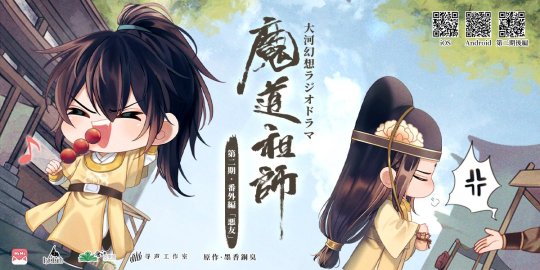
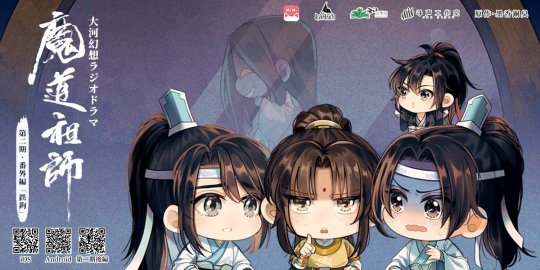
The download link can be found on our Discord server.
A gentle reminder to not reupload our files on any social media. Thank you everyone!
#mdzs#mdss#mo dao zu shi#ma dou so shi#mdzs japanese audio drama#lan wangji#wei wuxian#wangxian#gi musen#ran bouki#bousen#audio drama
136 notes
·
View notes
Text
The Japanese names for Mo Dao Zu Shi audio drama :
Wei Wuxian: Gi Musen
Lan Wangji: Ran Bouki
Hanguang jun: Gankou kun
Yiling Laozu: Iryou no rouso
#mo dao zu shi#wei wuxian#lan wangji#wangxian#audio drama#mdzs jp#cr for this: @ pink_tofu in twitter#myrs
63 notes
·
View notes
Text
MDZS Japanese Audio Drama Name reference
Mostly made for personal use, but I figured it might come in handy for other people who want to listen to the Japanese audio drama.
I don't go into detail with name meanings, since I figure they're more or less the same as in Chinese. Note that this list doesn't have all the characters yet, as I will update it as they show up in the drama (if I remember, lol)
Please let me know if you notice anything wrong/missing or if you have any questions!
PROTAGONISTS
Wei Wuxian - Gi Musen
Birth name: Ei
Title: Iryou Patriarch (Iryou no Rouso)
Lan Wangji - Ran Bouki
Birth name: Zan
Title: Gankou-kun
GUSULAN SECT: Ran Sect of Koso (Koso no Ran-shi)
Name meaning:藍(Ran): indigo
Location: The Cloud Recesses - Unshin no Fuchisho (雲深不知処)
Lan Xichen - Ran Gishin
Birth name: Kan
Title: Takuu-kun
Lan Shizui - Ran Shisui
Birth name: Gen
Lan Jingyi - Ran Keigi
Lan Qiren - Ran Keijin
YUNMENGJIANG SECT: Kou Sect of Unbou (Unbou no Kou-shi)
Name meaning: 江(Kou) = inlet, bay
Location: Lotus Pier - Unbou no Renkau (please wait while I figure out what the last kanji is lol)
Jiang Cheng - Kou Chou
Birth name: Bangin (yes, really)
Title: Sandoku Seishu (三毒聖手)
LANLINGJIN SECT: Kin Sect of Ranryou (Ranryou no Kin-shi)
Name meaning: 金(Kin) = gold
Location: Koi Tower Ranryou no Kinrindai (蘭陵金麟台)
Jin Guangyao - Kin Kouyou
Title: Renhouson (歛芳尊)
Jin Ling - Kin Ryou
Birth name: Nyoran
QINGHENIE SECT Jou Sect of Seika (Seika no Jou-shi)
Name meaning: 聶(Jou) = an uncommon kanji that can mean whisper, but mostly just used to write the Chinese surname Nie
Location: Unclean Realm - Seika no Fujousei (清河不浄世)
Nie Huaisang - Jou Kaisou
Nie Mingjue - Jou Meiketsu
19 notes
·
View notes
Text
sometimes i think about how all characters’ names have their different readings in both korean and japanese. and i despair
1. how LOVELY it is that songxiao is 송성 songseong. basically songsong but with different o’s. epic. i love it. side note: song lan really lucked out, being song ran. xxc is hyo seongjin and that’s cool too i guess
2. xue yang is 설앙 seol yang, and it’s the cutest
3. but the rest is a slide towards despair. lan wangji alone is ran bouki in japanese and nam manggi in korean. technically you can kind of figure it out but who the hell is “baku gen’u”? “JOU MEIKETSU”??? i’ll have my katakanas, thank you
#answer: it's mo xuanyu and nie mingjue EASY RIGHT#i'm not making posts like this one anymore i'm tired already
1 note
·
View note
Photo

Οι 100αδες του BBC είναι από τις λίστες αυτής της δεκαετίας που συζητιούνται λίγο περισσότερο σε σχέση με τις πολλές που περνούν από τα μάτια μας, σχεδόν σε καθημερινή βάση πλέον. Φτιαγμένες έτσι ώστε να περιλαμβάνουν όσο το δυνατόν ένα ευρύτερο φάσμα, είναι αποτέλεσμα καλέσματος του βρετανικού μέσου προς έναν μεγάλο αριθμό κριτικών και ακαδημαϊκών, που σφραγίζουν την αυθεντικότητα της.
Μετά από τις αντίστοιχες των 100 ταινιών γενικώς αλλά και των 100 του 21ου αιώνα, το BBC κυκλοφόρησε το αποτέλεσμα της έρευνας που έκανε σε 209 ειδικούς, φροντίζοντας και για το ανάλογο diversity καθώς αυτοί βρίσκονται σε 43 χώρες ενώ η αναλογία ανδρών-γυναικών είναι 55-45%.
Το αντικείμενό της ήταν οι μη αγγλόφωνες ταινίες και οι αθάνατοι «Επτά Σαμουράι» του Ακίρα Κουροσάβα, πήραν μάλλον αναμενόμενα την πρώτη θέση, με τον «Κλέφτη Ποδηλάτων» του Ντε Σίκα και το «Tokyo Story» του Όζου να συμπληρώνουν την πρώτη τριάδα. Άλλη μια ταινία του σκηνοθέτη να βρίσκεται στην πρώτη πεντάδα, το «Ρασομόν» που είναι τέταρτο.
Οι συμμετέχοντες δήλωσαν από 10 ταινίες ο καθένας με αξιολογική σειρά, ώστε να προκύψει το τελικό αποτέλεσμα. Οι σκηνοθέτες που έχουν τις περισσότερες θέσεις μέσα στην 100άδα είναι ο Ίνγκμαρ Μπέργκμαν και ο Λουί Μπουνιουέλ (από 5), με τον Κουροσάβα να ακολουθεί με 4.
Σε άλλα ενδιαφέροντα στατιστικά της λίστας, τα γαλλικά αποδεικνύονται η πιο δημοφιλής γλώσσα, καθώς ακούγονται σε 27 ταινίες, πολύ μακριά από τις 12 όπου ακούγονται Μανδαρινικά και τις 11 των ιταλικών.
Από τις τέσσερις μόλις ταινίες που είναι σκηνοθετημένες από γυναίκες, το «Jeanne Dielman, 23 Commerce Quay, 1080 Brussels» της Σαντάλ Άκερμαν βρίσκεται στην υψηλότερη θέση – στο νούμερο 14.
Δύο φιλμ αυτής της δεκαετίας κατάφεραν ήδη να θεωρούνται κλασικά ώστε να έχουν θέση εδώ, η «Αγάπη» του Μίκαελ Χάνεκε και ο «Χωρισμός» του Ασγκάρ Φαρχαντί, ενώ από τη λίστα δε θα μπορούσε να λείπει ο Θόδωρος Αγγελόπουλος, έστω και αν βρίσκεται στην τελευταία θέση με το υπέροχο Τοπίο στην Ομίχλη.
Δείτε παρακάτω τη λίστα με τις 100 ταινίες όπως αυτή ανακοινώθηκε από το BBC.
100. Landscape in the Mist (Theo Angelopoulos, 1988)
99. Ashes and Diamonds (Andrzej Wajda, 1958)
98. In the Heat of the Sun (Jiang Wen, 1994)
97. Taste of Cherry (Abbas Kiarostami, 1997)
96. Shoah (Claude Lanzmann, 1985)
95. Floating Clouds (Mikio Naruse, 1955)
94. Where Is the Friend's Home? (Abbas Kiarostami, 1987)
93. Raise the Red Lantern (Zhang Yimou, 1991)
92. Scenes from a Marriage (Ingmar Bergman, 1973)
91. Rififi (Jules Dassin, 1955)
90. Hiroshima Mon Amour (Alain Resnais, 1959)
89. Wild Strawberries (Ingmar Bergman, 1957)
88. The Story of the Last Chrysanthemum (Kenji Mizoguchi, 1939)
87. The Nights of Cabiria (Federico Fellini, 1957)
86. La Jetée (Chris Marker, 1962)
85. Umberto D (Vittorio de Sica, 1952)
84. The Discreet Charm of the Bourgeoisie (Luis Buñuel, 1972)
83. La Strada (Federico Fellini, 1954)
82. Amélie (Jean-Pierre Jeunet, 2001)
81. Celine and Julie go Boating (Jacques Rivette, 1974)
80. The Young and the Damned (Luis Buñuel, 1950)
79. Ran (Akira Kurosawa, 1985)
78. Crouching Tiger, Hidden Dragon (Ang Lee, 2000)
77. The Conformist (Bernardo Bertolucci, 1970)
76. Y Tu Mamá También (Alfonso Cuarón, 2001)
75. Belle de Jour (Luis Buñuel, 1967)
74. Pierrot Le Fou (Jean-Luc Godard, 1965)
73. Man with a Movie Camera (Dziga Vertov, 1929)
72. Ikiru (Akira Kurosawa, 1952)
71. Happy Together (Wong Kar-wai, 1997)
70. L’Eclisse (Michelangelo Antonioni, 1962)
69. Amour (Michael Haneke, 2012)
68. Ugetsu (Kenji Mizoguchi, 1953)
67. The Exterminating Angel (Luis Buñuel, 1962)
66. Ali: Fear Eats the Soul (Rainer Werner Fassbinder, 1973)
65. Ordet (Carl Theodor Dreyer, 1955)
64. Three Colours: Blue (Krzysztof Kieślowski, 1993)
63. Spring in a Small Town (Fei Mu, 1948)
62. Touki Bouki (Djibril Diop Mambéty, 1973)
61. Sansho the Bailiff (Kenji Mizoguchi, 1954)
60. Contempt (Jean-Luc Godard, 1963)
59. Come and See (Elem Klimov, 1985)
58. The Earrings of Madame de… (Max Ophüls, 1953)
57. Solaris (Andrei Tarkovsky, 1972)
56. Chungking Express (Wong Kar-wai, 1994)
55. Jules and Jim (François Truffaut, 1962)
54. Eat Drink Man Woman (Ang Lee, 1994)
53. Late Spring (Yasujirô Ozu, 1949)
52. Au Hasard Balthazar (Robert Bresson, 1966)
51. The Umbrellas of Cherbourg (Jacques Demy, 1964)
50. L’Atalante (Jean Vigo, 1934)
49. Stalker (Andrei Tarkovsky, 1979)
48. Viridiana (Luis Buñuel, 1961)
47. 4 Months, 3 Weeks and 2 Days (Cristian Mungiu, 2007)
46. Children of Paradise (Marcel Carné, 1945)
45. L’Avventura (Michelangelo Antonioni, 1960)
44. Cleo from 5 to 7 (Agnès Varda, 1962)
43. Beau Travail (Claire Denis, 1999)
42. City of God (Fernando Meirelles, Kátia Lund, 2002)
41. To Live (Zhang Yimou, 1994)
40. Andrei Rublev (Andrei Tarkovsky, 1966)
39. Close-Up (Abbas Kiarostami, 1990)
38. A Brighter Summer Day (Edward Yang, 1991)
37. Spirited Away (Hayao Miyazaki, 2001)
36. La Grande Illusion (Jean Renoir, 1937)
35. The Leopard (Luchino Visconti, 1963)
34. Wings of Desire (Wim Wenders, 1987)
33. Playtime (Jacques Tati, 1967)
32. All About My Mother (Pedro Almodóvar, 1999)
31. The Lives of Others (Florian Henckel von Donnersmarck, 2006)
30. The Seventh Seal (Ingmar Bergman, 1957)
29. Oldboy (Park Chan-wook, 2003)
28. Fanny and Alexander (Ingmar Bergman, 1982)
27. The Spirit of the Beehive (Victor Erice, 1973)
26. Cinema Paradiso (Giuseppe Tornatore, 1988)
25. Yi Yi (Edward Yang, 2000)
24. Battleship Potemkin (Sergei M Eisenstein, 1925)
23. The Passion of Joan of Arc (Carl Theodor Dreyer, 1928)
22. Pan’s Labyrinth (Guillermo del Toro, 2006)
21. A Separation (Asghar Farhadi, 2011)
20. The Mirror (Andrei Tarkovsky, 1974)
19. The Battle of Algiers (Gillo Pontecorvo, 1966)
18. A City of Sadness (Hou Hsiao-hsien, 1989)
17. Aguirre, the Wrath of God (Werner Herzog, 1972)
16. Metropolis (Fritz Lang, 1927)
15. Pather Panchali (Satyajit Ray, 1955)
14. Jeanne Dielman, 23 Commerce Quay, 1080 Brussels (Chantal Akerman, 1975)
13. M (Fritz Lang, 1931)
12. Farewell My Concubine (Chen Kaige, 1993)
11. Breathless (Jean-Luc Godard, 1960)
10. La Dolce Vita (Federico Fellini, 1960)
9. In the Mood for Love (Wong Kar-wai, 2000)
8. The 400 Blows (François Truffaut, 1959)
7. 8 1/2 (Federico Fellini, 1963)
6. Persona (Ingmar Bergman, 1966)
5. The Rules of the Game (Jean Renoir, 1939)
4. Rashomon (Akira Kurosawa, 1950)
3. Tokyo Story (Yasujirô Ozu, 1953)
2. Bicycle Thieves (Vittorio de Sica, 1948)
1. Seven Samurai (Akira Kurosawa, 1954)
Daily inspiration. Discover more photos at http://justforbooks.tumblr.com
17 notes
·
View notes
Text
Top 10 African Movie Directors
Africa has had an important spot in the internal film industry for close to one century. In this article, we are going to feature the best African movie directors of all times since African produced films started gaining international recognition.
Related: Hottest Actors in South Africa – Top 10
Without further adieu, here are the most prolific, top ten African movie directors.
Neill Blomkamp
Born on 19th September 1979 in Johannesburg South Africa, Neill Blomkamp has had a successful string of movies directed by him since his debut in the film industry in the late 1990’s as 3D animation expert. His most famous movie is District 9, which was Africa’s best Sci-Fi film in 2009. Its success made him to be nominated for the Academy Award for Best Adapted Screenplay.
Niell Blonkamp has so far directed 18 movies with more than a dozen of them being done in 2017 alone.
Abderrahmane Sissako
Abderrahmane Sissako was born on 13th October 1961 in Mauritania. He is best known for his movie Waiting for happiness. This movie expresses the limbo encountered by the dream of most people from his native land to emigrate to France and other destinations abroad as the land of their dreams.
Sissako’s films are focused primarily on issues pertaining society, more so humanism, social consciousness, globalization, displacement of people, exiles and the intricate relationships between North and South. In this theme, he explores the fate of Africa in the global affairs.
Souleymane Cissé
Souleymane was born on 21st April 1940 in Mali. He has won two awards – Sutherland Trophy, and Cannes Jury Prize. He was nominated for Independent Spirit Award for Best International Film. He debuted his filming career with a medium-length film titled ‘Five Days in a Life’, which is a story about a young man who drops out of Madrassa to become a petty thief. This was followed by ‘The Girl’ in 1974, which is about a young mute girl who has been raped, becomes pregnant and is rejected by both her parents and those of the child’s father. Unfortunately, the film was banned and him jailed. However, he never gave up.
In 1974, he produced ‘Work’ (Baara) which received him several awards including Talon prize award at FESPACO. In 1987, he released Yeelen, which won him Jury Prize at the Cannes (1987). He went on to produce many other films later on.
Another must read: Most Populous Countries in Africa
Moufida Tlatli
Moufida Tlatli was born in Tunisia in 1947. She worked extensively as a film editor before launching her career later on as a film director. She is renowned for her famous film The Silences of the Palace. This depicts the story of the women sufferings in silence and secrets of the pain of the servant women during the times of the French colonial rule in Tunisia. This film was released in 1994.
Other notable films directed by her include ‘The Season of Men’ released in the year 2000 and ‘The Season of Women’ released in the year 2004.
After the civilian overthrow of Zine El Abidine Ben Ali in 2011 during the ‘Arab Spring’, she was appointed as Minister for Culture in the successive government.
Dani Kouyaté
Dani Kouyate was born on 4th June 1961 in Burkina Faso. He began his filming career with Biakoro in 1989. Before that, Kouyate had been involved in performance arts theater for quite some time prior to enrolling for Cinematography at the Ouagadougou African Institute of Cinematic Studies.
His famous film was Keïta, l’Héritage du Griot which was released in 1985 retracing the life of the founder of the Mandingue Empire, the legendary Soundjata Keïta. Inspired by its success, he directed another one ‘Sia, le rêve du python’, depicting the legend of Wagadu of the Soninke myth which was released in 2001. He has directed several TV series and short quite a number of short films.
Related: Hottest African Actresses in Hollywood – Top 10
Mohammed Lakhdar-Hamina
Lakhidar-Hamina was born on 26th February 1934 in Algeria. He is best known for his famous film Chronicle of the Year of Embers that was done in 1975. Lakhdar-Hamina’s early career was emblemized in the struggle for Algerian independence from France. The Algerian liberation movement – Algerian National Liberation Front., sponsored the early stages of his film career. Initially, he collaborated with others in his first film productions including Our Algeria (Djazzaïrouna), which he collaborated with Pierre Chaule and Djamel Chanderli in its production. The film was about the goals of Manquis – an Algerian nationalist liberation movement. It was produced in 1960.
Other notable films included Yasmina (1961) which was about a refugee girl, The Guns of Freedom (1961), and The People’s Voice (1962). After Algeria gained independence in 1962, the theme of his later films focused on national identity and the self in postcolonial emancipation.
Apart from the Chronicles of the Year of Embers, another film that shot to international fame is ‘The Winds of the Aures ‘which received the Best First Works Award at Cannes in 1966. Chronicles of the Year of Embers remains the only African and Arab film to have won the Golden Palm at Cannes.
Djibril Diop Mambéty
Djibril Diop Mambéty was born on January 23, 1945, in Senegal. He was a poet, orator, composer, actor and film director. Although he directed few films, they were a masterpiece in their own right in terms of their originality and unconventional narrative style.
He entered the film industry with his famous title “A City of Contrasts” in 1968. This was followed by his second film “Badou Boy” which was released in 1970. The masterpiece that brought him to international fame was Touki Bouki (Hyenas Journey) which was revered for its sophisticated artistic narrative style. It was released in 1973.
Though he had few films to his accolades, their quality was enough to put him into the legendary records of African film directors.
You May Also Like: Richest Countries in Africa
Sarah Maldoror
Sarah Maldoror is regarded as the matriarch of African film. She is Guadalupean of African descent born in France. She dedicated most of the film towards African issues, notably, the African struggle for independence, liberation, and justice. She was feted in 2011 by the French government by being awarded the National Order of Merit in contribution to world culture.
She is famously known for Sambinzanga, a film she directed which was focused on Angola’s independence struggle and the brutally meted upon Africans, which galvanized the independence movement. He debut film was Monangambee, which was about women experiences in the liberation struggle in Angola and was done in 1968.
In her career spanning over two decades, she has over two dozen films to her credit.
A Relevant Read: West African Countries
Ousmane Sembène
Ousmane is considered the patriarch of African film. He was born on 1st January 1923 in Senegal. He was so much attached to social issues affecting Africa then, more so issues related to colonialism, newly independent but oppressive African governments and the plight of the people in those situations. He had most of his punches in literature than in the film. Several of his works were banned in French West Africa for his radical extremist approach to issues.
He had a great record of works in literature and films. His most famous film is Guelwaar (Senegal, 1993). Other notable films included Xala and Ceddo. Ceddo was the most notoriously censored film by authorities in French West Africa.
Youssef Chahine
Youssef Chahine was born on 25th January 1926, in Alexandria Egypt. The Lifetime Achievements Award granted to him at Cannes caps his career that spanned close to four decades. His career began in the 1950’s and by the time of his death, he had 44 films to his credit.
The most famous film is Cairo Station, which was recorded in 1958. He entered the film industry in 1950 with his title Baba Amin (Daddy Amin) which was followed closely by the second title Ebn el-Nil (Son of the Nile) which was done in 1951. Cairo Station was his third title. Most of his films were well received internationally but had many problems in his own native country – Egypt.
This is primarily because some of them ran counter to the political climate at the time and seemed against Islamic religious faith. He was a frequent victim of death threats from Islamic extremists. However, he too received criticism from American establishment for his film that sought to depict American foreign policy as the cause of millions of deaths across the globe.
Related: Most Popular African TV Shows – Top 10
Conclusion
Africa has a rich cultural heritage. It needs more talented film directors to drive the rich African narratives that remain untold. If Africa has to stand strong on the global arena, then, its feet must be deeply anchored in its culture and its voices made to reverberate across the globe. Thanks to these great African movie directors that pace has been set.
The post Top 10 African Movie Directors appeared first on Afrikanza.
2 notes
·
View notes
Text
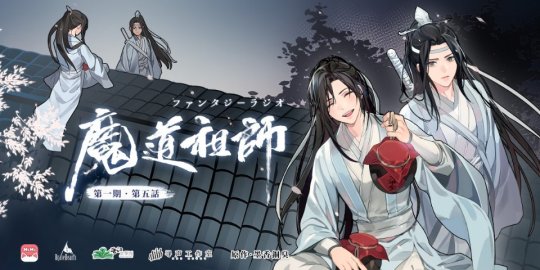
Japanese audio drama ep 5: Gi Musen/Gi Ei (Wei Ying) and Ran Bouki/Ran Zan (Lan Zhan) meet cute at Cloud Recesses and bond over porn and punishment in the Library Pavillion. Our boys looked so adorable when they were young! 😁😁😁
Omg teen Lan Zhan sounds so CUTE!
MIMI FM official link: https://m.mimifm.jp/sound/14312
Chinese audio drama ep 5 at Maoer FM site: https://missevan.com/sound/1018759
Novel chaps 11 - 16
https://exiledrebelsscanlations.com/novels/grandmaster-of-demonic-cultivation/
MDZS donghua eps 3 & 4
MDZS manhua chaps 30 - 36 (available on WeComics app)
The Untamed eps 3 - 5
161 notes
·
View notes